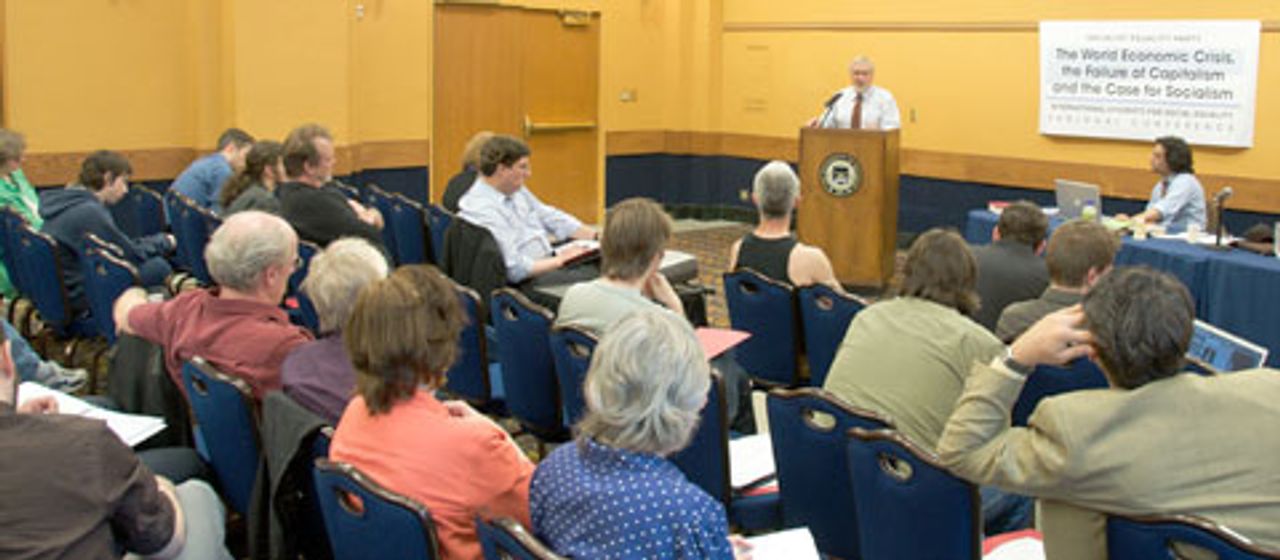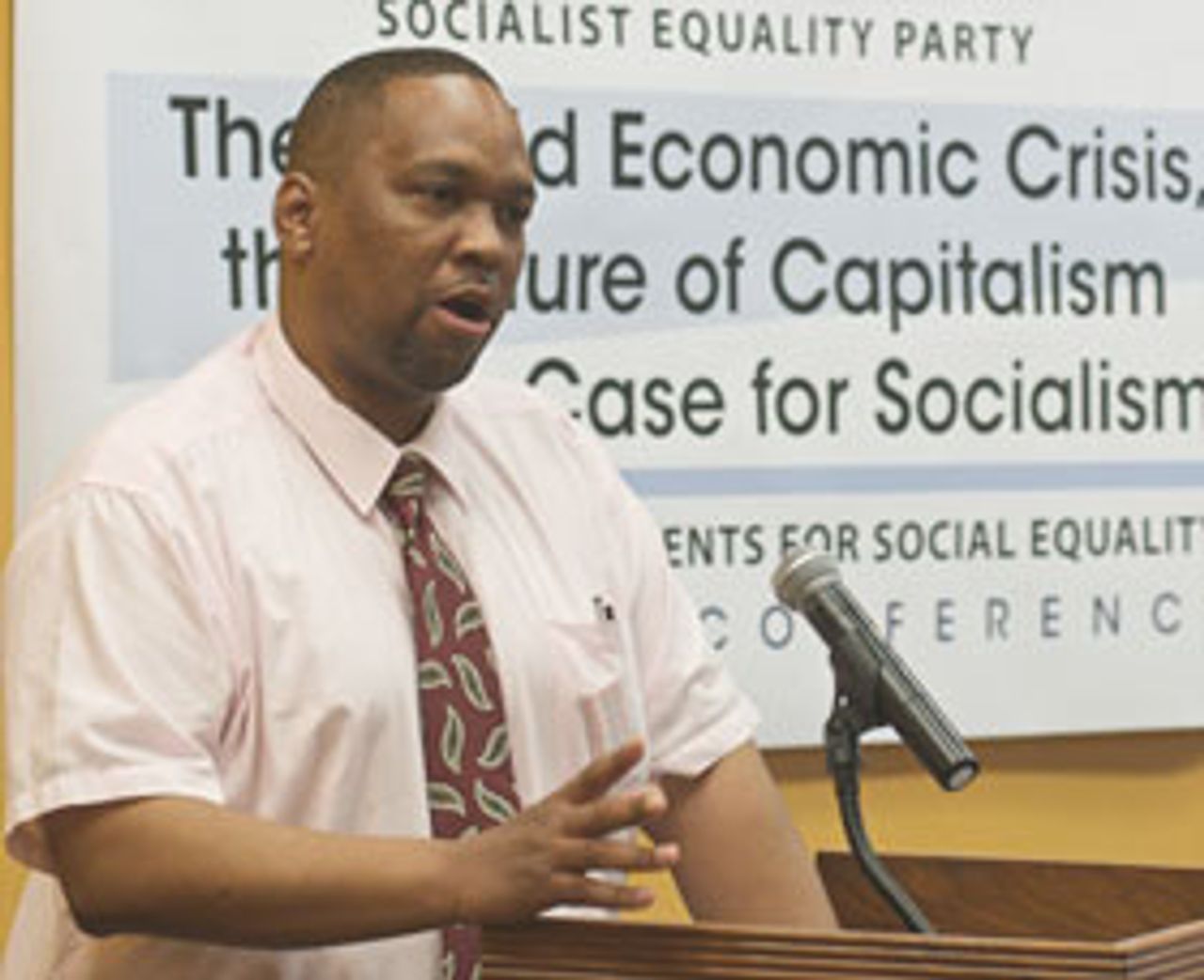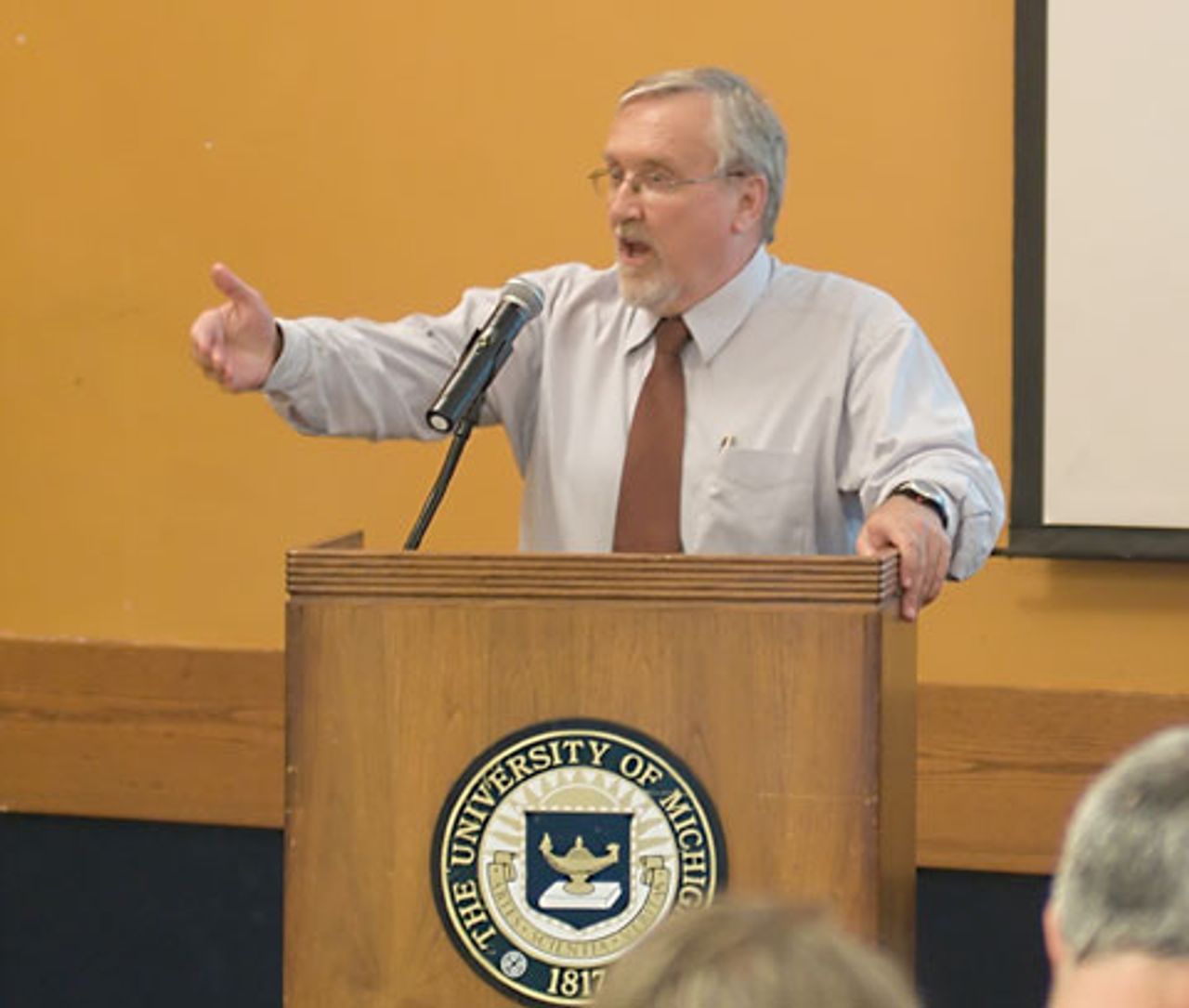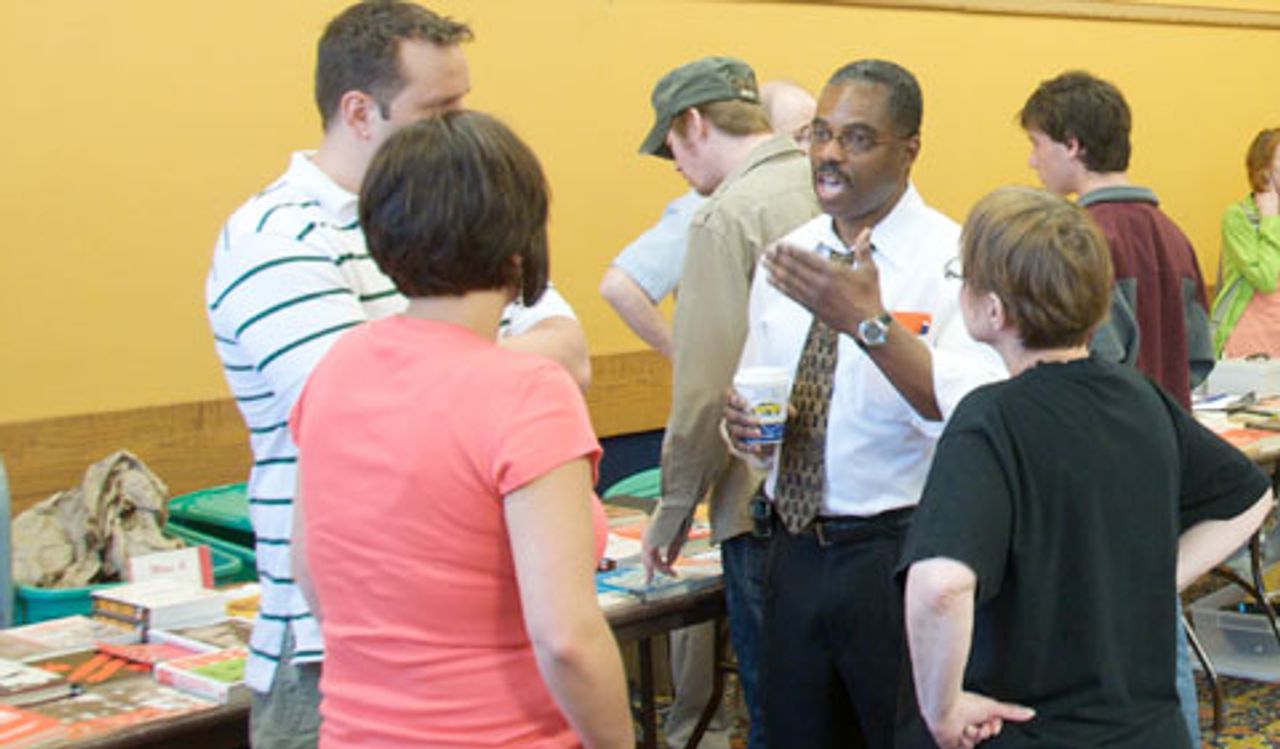 On Saturday in Ann Arbor, Michigan, the Socialist Equality Party, World Socialist Web Site, and the International Students for Social Equality jointly hosted the first of three regional conferences, “The World Economic Crisis, the Failure of Capitalism, and the Case for Socialism.”
On Saturday in Ann Arbor, Michigan, the Socialist Equality Party, World Socialist Web Site, and the International Students for Social Equality jointly hosted the first of three regional conferences, “The World Economic Crisis, the Failure of Capitalism, and the Case for Socialism.”
The event attracted a large crowd, drawing students and workers from Michigan, Illinois, Ohio, Indiana, Minnesota, Pennsylvania, Iowa, and Missouri, as well as international students. Delegates attended the meeting from Australia and Canada.
The conference discussed, and unanimously adopted, a conference resolution that analyzes the economic crisis and outlines a program for the mobilization of the working class. The World Socialist Web Site will publish the resolution in full after its discussion at two other regional conferences. [See, “The World Economic Crisis, the Failure of Capitalism, and the Case for Socialism” ].
 D'Artagnan Collier, SEP mayoral candidate for
D'Artagnan Collier, SEP mayoral candidate forDetroit, addresses the conference
David North, the national chairman of the SEP and the chairman of the international editorial board of the WSWS, gave the opening report to the meeting. Afterward, the national secretary of the SEP, Joseph Kishore, presented the draft resolution.
The national secretary of the SEP of Australia, Nick Beams, presented an economic analysis of the current economic crisis. The meeting also heard contributions from D’Artagnan Collier, the SEP’s mayoral candidate for Detroit, and Jerry White, the SEP’s 2008 presidential candidate. Collier reviewed the political lessons and the broader significance of the decline of Detroit, while White examined the crisis in the US auto industry.
In introductory remarks, Kishore noted that the meeting was being held as the world economy slides into the greatest crisis since the 1930s. “If this economic crisis is not to lead to a disaster for the world’s population, the working class must intervene with its own program,” he said. “This will be the focus of our discussion today.”
In his opening report, North reviewed the nature and scale of the crisis. He argued forcefully that there would be no “rebound.” “This crisis,” he explained, “is the form in which a massive restructuring of the global economy, and the social and class relations upon which it is based, is taking place.”
North placed the crisis within the framework of the social and economic development of the past 30 years, and he examined the history of class struggle in America. He argued that a new period of class struggle was emerging in the United States and internationally, and that what was most critical was to establish the political foundations for the development of a mass socialist movement—the purpose of the conferences.
 National secretary of the SEP of Australia, Nick Beams speaks on the global economy
National secretary of the SEP of Australia, Nick Beams speaks on the global economyIn his report, Beams examined the origins of the current crisis and the contradictions of world capitalism, paying particular attention to the relationship between the US and China. Beams stressed the rapidity and international scope of the current crisis, demonstrating the severity by comparison to the Great Depression.
All the explanations from bourgeois economists are ahistorical, Beams argued, because they attribute the crisis to various external or superficial failings, rather than explaining it as an outcome inherent within the capitalist system itself.
A central theme throughout the conference and the resolution was the importance of internationalism. Greetings sent to the conference from SEP sections in Sri Lanka, Germany, and Britain stressed the need for workers of all countries to unite on the basis of their common class interests.
Chris Marsden, national secretary of the SEP in Britain, said that the conferences were being “followed by politically conscious workers and intellectuals the world over.” He wished the conferences success in establishing “the only ‘special relationship’ that matters—the international unity of the working class in the struggle for socialism.”
 The literature table was a site for lively discussion during breaks in the conference
The literature table was a site for lively discussion during breaks in the conferenceThe remainder of the meeting was devoted to questions and contributions. These included questions about the long-term viability of the US dollar, the nature of American trade unions, “underconsumptionist” theories of the economic crisis, how to bring to justice those in the US government who ordered torture on “terror” suspects, and the role of the Red Scare in purging class conscious workers from the unions after World War Two.
The WSWS urges all its readers to make plans to attend the conferences in New York (May 3) and California (May 10). Click here to register.
